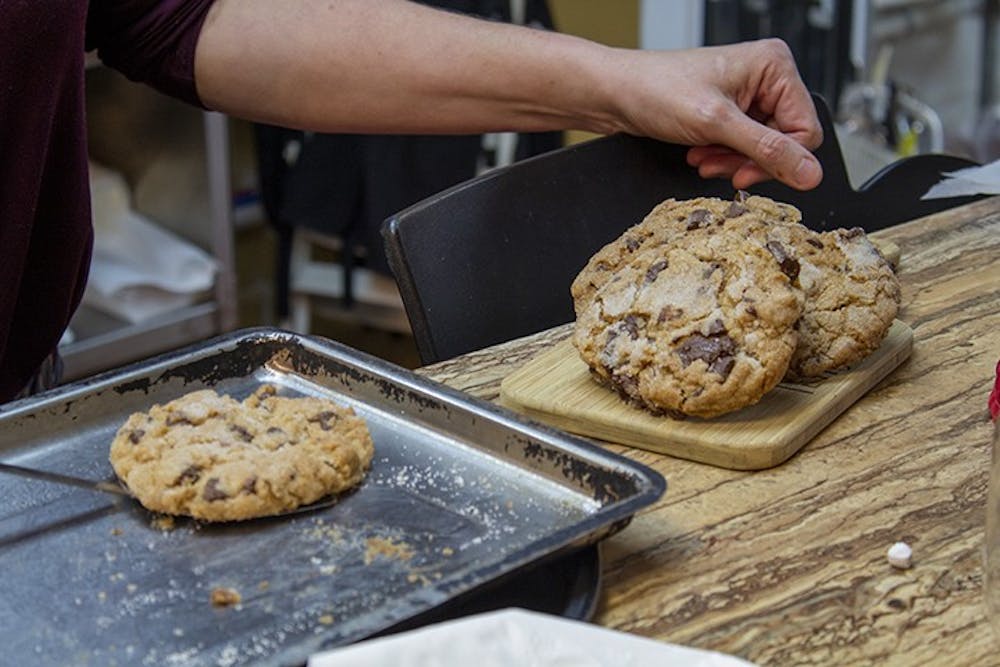Eating out in Columbia poses a risk for second-year math and Spanish student Emily Elliott.
She looks up online menus before going new places — because “there’s nothing worse than getting to a restaurant and realizing that the only gluten-free option is a salad with no croutons” — and she calls ahead to ask questions about gluten-free options. If the hostess can’t answer them, she isn’t confident her dietary restriction will be taken seriously at that location.
Elliott has celiac, an autoimmune disease in which the body launches an immune response against gluten, attacking the small intestine and causing a range of symptoms from weight loss to vomiting and even death.
While she said Columbia isn’t perfect in its gluten-free offerings, she has seen some improvements over time.
“We’ve had friends that were gluten-free growing up, and I remember my mom pulling her hair out, trying to figure out what to feed them,” Elliott, who was diagnosed two years ago, said.
Demand for gluten-free products has increased in the past six years, and it is projected to continue to grow. The global market size, or the amount of sales within the gluten-free market, is projected to increase from $21.61 billion to $43.65 billion between 2019 and 2027, according to Grand View Research.

Like cities across the country, Columbia is adapting to the trend.
Fourth-year theater student Damian Garrod worked in the restaurant industry for 30 years before going back for his degree. He first moved to Columbia in 2001, waiting tables and managing restaurants before moving to bigger cities such as New York City and Chicago. According to him, Columbia had a late start in the gluten-free market.
Garrod became gluten-free while working in Chicago in 2015, when he learned he was “borderline celiac.” For the most part, he said, following a gluten-free diet was easy since most Chicago restaurants already limited their use of gluten and most grocery stores offered gluten-free products. This was not the case upon his 2016 return to Columbia.
“The Walmarts in Illinois were already serving, back in 2015, organic food and gluten-free food," Garrod said. "When we came to Columbia, they looked at me like I was crazy. They had no idea what I was talking about.”
Within a few years, local Walmarts would join Chicago in offering gluten-free selections; other businesses would soon follow suit.
Cupcake DownSouth general manager Courtney Starling said there was a rise in demand for gluten-free cupcakes “at least five years ago,” prompting special orders, twice-a-week options and, most recently, a daily rotation.
The Local Buzz owner Stephanie Bridgers said her coffee shop first started selling gluten-free options at the suggestion of an employee. Today, Bridgers adheres to a gluten-free diet herself at the advice of a doctor. Other businesses, which don't have gluten-free options, direct customers to her store. If not for those special orders, she said, she “probably would not be making much money, if any money.”
She has also committed to avoiding cross-contamination by putting gluten-free items on a separate display rack and paying close attention to utensils while baking.
“Until you live it, like you’re vegan or gluten-free or whatever, you don’t really get it,” Bridgers said. “I love baking and cooking gluten-free because a lot of places don’t have it, and it’s hard to find things that are delicious.”
According to Garrod, as gluten-free diets gained national attention, local restaurants realized they already had gluten-free options on their menus. Though nothing changed in the ingredients, businesses began to promote items differently.
“It’s kind of like putting on a pack of carrots, ‘gluten-free,’ right? It’s obvious. It’s a carrot,” Garrod said.
This opened the door to overcharging. According to Bridgers, she was unhappy with the upcharges she saw in gluten-free options at some restaurants, which encouraged her to sell her baked items without any extra fees.
Bridgers said she estimates a gluten-free piece of bread has about a 30-cents difference from a regular piece of bread. Although some places might charge a convenience fee for this, she would be “more inconvenienced if people didn’t come in because we charge a convenience fee.”
While gluten-free businesses such as The Local Buzz represent a more inclusive food culture in Columbia, Garrod said there is still room for improvement.
“Before, it was manly to deal with pain, and it was wussy to be like, ‘Oh, I’m having stomach problems’ … Now, people are more open to discuss their food allergies,” Garrod said. “Is there room for improvement? Absolutely. Will things continue to get better? For sure.”

